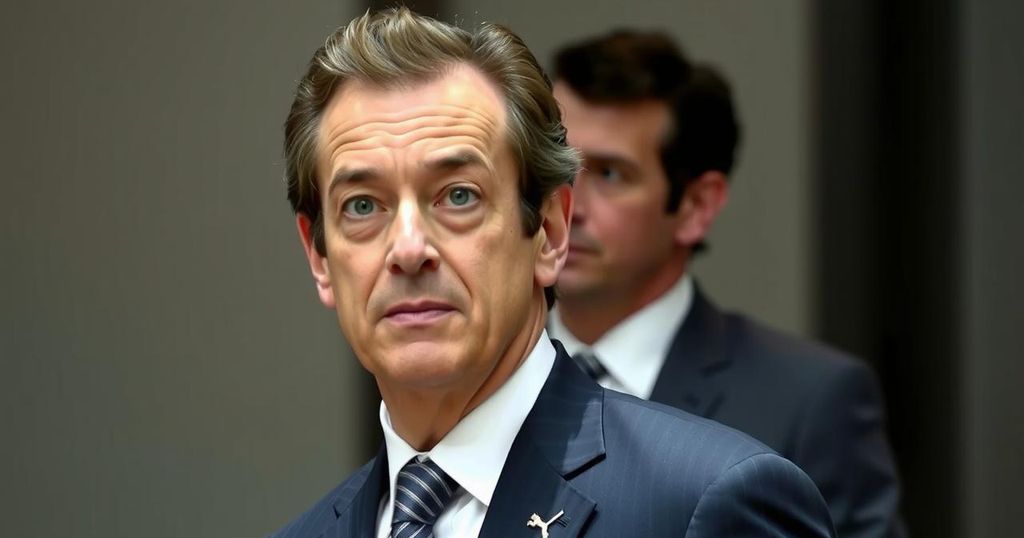Nicolas Sarkozy has begun a trial in Paris over accusations of illegal campaign financing from Libya for his 2007 election. This serious legal challenge follows his recent conviction for corruption, marking another significant moment in his post-presidency legal battles.
Nicolas Sarkozy, the former French president, commenced trial in Paris on charges of having accepted unlawful funding from the Libyan regime of Colonel Muammar el-Qaddafi for his 2007 election campaign. This trial is scheduled to span three months and represents a significant legal challenge for Mr. Sarkozy, who previously endured several legal issues after his presidency ended in 2012. Notably, he recently faced a separate case involving corruption and influence peddling, leading to a house arrest sentence after exhausting his appeals.
The importance of this trial lies in the serious implications it may have on Mr. Sarkozy’s political legacy and public life. It underscores the broader issues of political financing and accountability that have surfaced globally, particularly regarding the influence of foreign entities on domestic political processes. As Sarkozy navigates these serious charges, the courtroom proceedings may further illuminate the intersection of politics and legality in contemporary France.
This case not only highlights the precarious situation in which Mr. Sarkozy finds himself but also raises questions regarding the legitimacy and ethics surrounding campaign financing in international contexts. The implications of the trial may resonate beyond Sarkozy, possibly affecting public perceptions of political integrity in France and beyond.
Nicolas Sarkozy served as the President of France from 2007 to 2012 and has faced a series of legal challenges post-presidency. Of particular note is the ongoing scrutiny regarding his 2007 campaign, which is alleged to have benefited from illegal funds sourced from the Libyan government. The significance of this case is magnified by Sarkozy’s recent conviction for corruption and influence peddling, marking him as the first former French president to receive a prison sentence, albeit under house arrest. This situation embodies broader discussions about campaign finance and the integrity of political figures.
In summary, the trial of Nicolas Sarkozy represents a critical juncture in the French political landscape, as it not only confronts allegations of illicit campaign financing but also follows his recent conviction for corruption. The proceedings are expected to scrutinize not only Sarkozy’s actions but also broader issues concerning political accountability and ethical governance. Given his previous legal predicaments, Sarkozy’s ability to navigate this trial may significantly influence his legacy and the public’s trust in political institutions in France.
Original Source: www.nytimes.com






